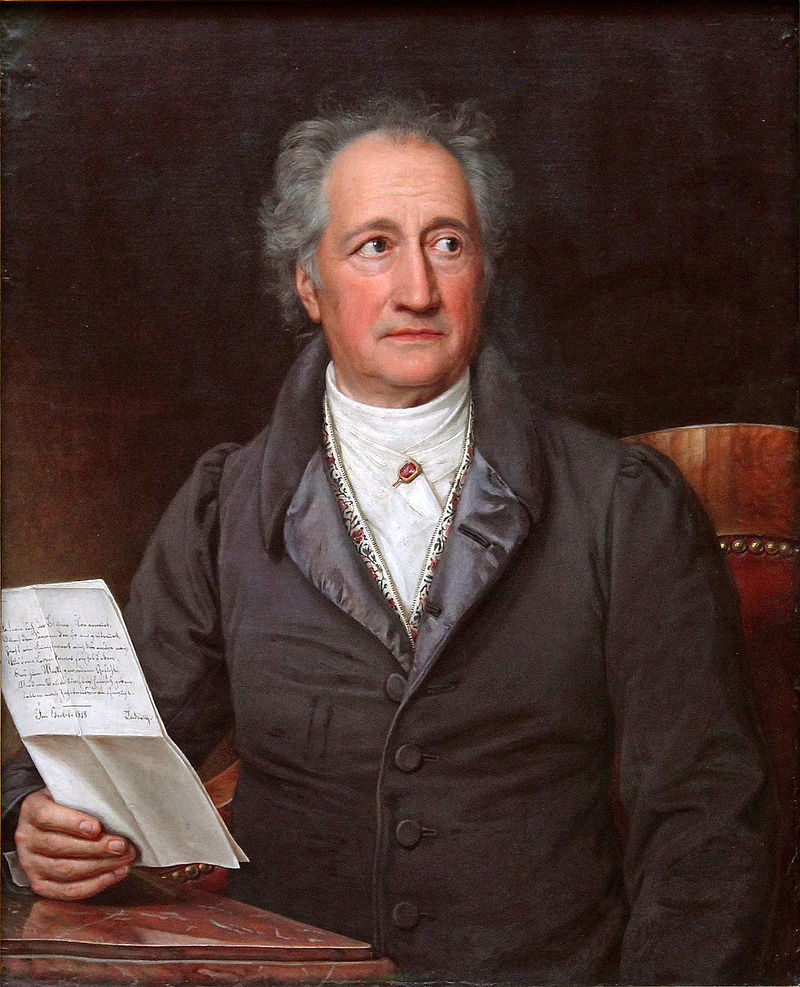Johann Wolfgang von Goethe
|
It has been said that the German writer and statesman Johann Wolfgang von Goethe (August 28, 1749 – March 22, 1832) may well have been the last Renaissance Man, a polymath with expertise spanning a wide range of subject areas. The publication of The Sorrows of Young Werther, possibly the first best-seller, made him a celebrity at the age of 25 and brought him to the attention of the Duke of Saxe-Weimar, who gave him a title and put him to work serving on his privy council, where he served on the War Commission and the Mines and Highway Commissions; he eventually served as Chancellor of the Exchequer in addition to serving as the Duke’s principal advisor. His literary output includes Wilhelm Meister’s Apprenticeship, which Schopenhauer included as one of the four great novels of all time (the others being Tristram Shandy, La Nouvelle Heloise, and Don Quixote), and the epic masterpiece Faust. His scientific works include Metamorphosis of Plants (1790), which anticipated evolutionary theory, and Theory of Colours, which he considered his most important work. He published numerous poems, many of which were set to music by the likes of Beethoven and Mozart, wrote essays and criticism, and left behind over 10,000 letters and nearly 3,000 drawings. His influence on later generations was enormous as the originator of many ideas which became widespread. He is consistently ranked with the great thinkers and achievers of all time: Plato, Napoleon, Shakespeare, Adam Smith, and Thomas Jefferson, to name a few. He deserves our respect and, more importantly, our attention. |
Faust
The theme of making a deal with the devil is one of the most enduring in all art forms. Most treatme..
$11.99


